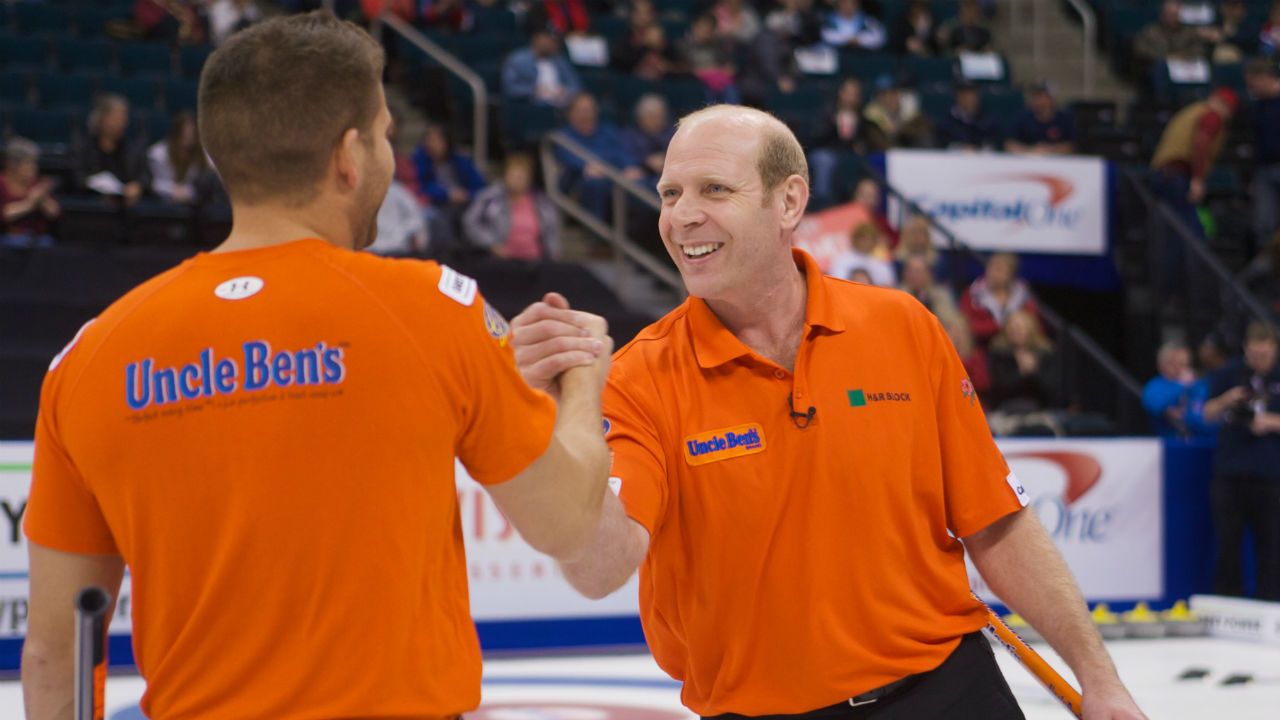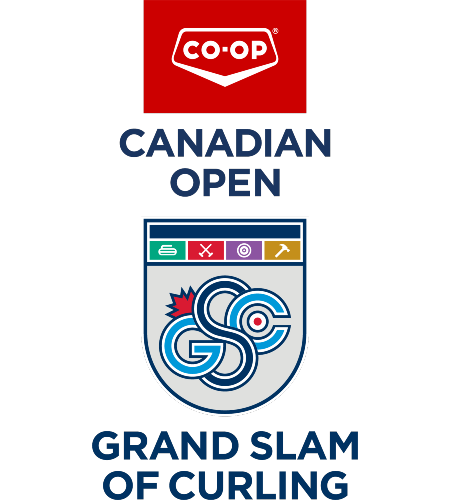Eight Ends: A brief history of the Meridian Canadian Open
If the Meridian Canadian Open was an episode of Friends it would be called “The One with Triple Knockout” although there’s so much more to the event than its unique format.
The major tournament has been a cornerstone in the Pinty’s Grand Slam of Curling as one of the four charter events in the elite series.
Before we get ready for the latest edition — starting Tuesday night at the Gallagher Centre in Yorkton, Sask. — let’s take a look at some of the top moments in the history of the Meridian Canadian Open:
1st End: Let’s begin with the one that started it all in December 2001. The inaugural Canadian Open kickstarted the Grand Slam era in Wainwright, Alta., as the first leg of the all-new series. Wayne Middaugh was crowned champion after scoring a deuce in the eighth and stealing the winning point in the 10th end to lift his team over Jeff Stoughton’s club 8-7. Fun fact: Triple knockout was the norm when the Pinty’s Grand Slam of Curling was created although all events switched to round-robin pool play a few seasons later.
2nd End: No one has won more GSOC titles than Kevin Martin, who tops the list with 18, so it shouldn’t be a surprise the Ol’ Bear also has the most Canadian Open championships at five. Three of those came within a span of four seasons from 2007-10 with his legendary lineup of third John Morris, second Marc Kennedy and lead Ben Hebert. The foursome opened 2010 missing the playoffs at the National but came out firing just two weeks later at the Canadian Open in Winnipeg. Martin defeated Glenn Howard’s team 6-4 in a repeat of the Olympic Trials final. Team Martin finished the tournament 8-0 and were all tuned up for the Winter Games less than a month later where they captured gold on home ice in Vancouver.
3rd End: Since Martin’s reign, only one other team has captured back-to-back Canadian Open titles. Mike McEwen’s crew pulled off the feat during the 2010-11 and 2011-12 seasons. The first of the pair took place in Oshawa, Ont., and made our most memorable moments of the decade list as McEwen had to pull off a straight shot avoiding a guard and another stone to hit and stick for the win in an extra end over Howard 5-4. The OT period also held up the start of the NHL’s All-Star Game pre-show.
McEwen’s successful title defence in Kingston, Ont., came with a twist. It was the first GSOC event played with the five-rock free-guard zone as the series opted to give the rule a test run. No problem for McEwen, who ran right through the tournament again posting another perfect 8-0 record en route to the title. This time McEwen upended Winnipeg rival Jeff Stoughton 5-2 in the final. The GSOC continued to experiment with the five-rock rule until making it official for all events in 2014.
4th End: Yorkton has hosted the Meridian Canadian Open twice before and in back-to-back years. The first in 2014 also happened to be the first time a women’s division was added to the event and it was also when the tournament reverted to a triple knockout format to give it a different flavour than the other Grand Slams. Eve Muirhead and her Scottish squad captured the women’s title stealing two points in the second end and remaining one step ahead of Rachel Homan’s crew to hold on for a 5-3 win.
5th End: The one that got away from Team Homan came back when the event returned to Yorkton the following season. Homan scored two in the eighth end to top Jennifer Jones 8-7 for the women’s title. The Ottawa-based club, winners of the Masters and National earlier in the season, made history becoming the first women’s team to capture three consecutive GSOC titles. It’s a feat they matched in 2018-19 but we’ll have more on that in the final end below.
6th End: Brad Gushue’s crew have also appeared in both Yorkton finals over on the men’s side although with a reversal of Homan’s experience. Gushue came through in the clutch to score the title in 2014 with a 6-5 victory over home-province heroes Team Steve Laycock. The St. John’s, N.L., skip made an angle-raise double with his first stone of the eighth end to land on the pinhole and drew for a piece of the button with his last to score the winning deuce.
The 2015 men’s championship game between Gushue and John Epping’s team has been the only time two A-qualifiers have met in a Meridian Canadian Open final (so far) since triple knockout returned. With two perfect-record teams squaring off you knew they would have to play perfectly, too. Epping did just that shooting 100 per cent in the 7-4 win. Gushue reached the men’s final for a third straight season in 2017 in North Battleford, Sask. This time Gushue was the one who threw 100 per cent in the 8-3 win over Team Niklas Edin.
7th End: What an entrance for Casey Scheidegger, who made a stunning top-tier series debut at the Meridian Canadian Open in 2017. Scheidegger had a slow start with a 1-2 record, but her Lethbridge, Alta., team stormed like a hurricane with victories in five consecutive must-win games. Steals played a crucial factor, especially in the women’s final against Team Silvana Tirinzoni with Scheidegger pirating points in three ends including the final frame for the shocking 5-4 victory and her first GSOC women’s championship.
8th End: Team Homan and Team Brendan Bottcher are the defending champions heading into next week with both going undefeated 6-0 a year ago in North Battleford, Sask. Homan won her third consecutive GSOC title, and record 10th women’s championship, defeating Tirinzoni 4-3 in the women’s final. It was just the beginning for Bottcher, who doubled up on Epping 6-3 for the first GSOC title of his career and the start of a trio of championship wins in the series with additional hardware at the Players’ Championship and Humpty’s Champions Cup. Once you win your first the rest come in bunches, right?

